'I survived 28 hours lost in the Indian Ocean'
- Published
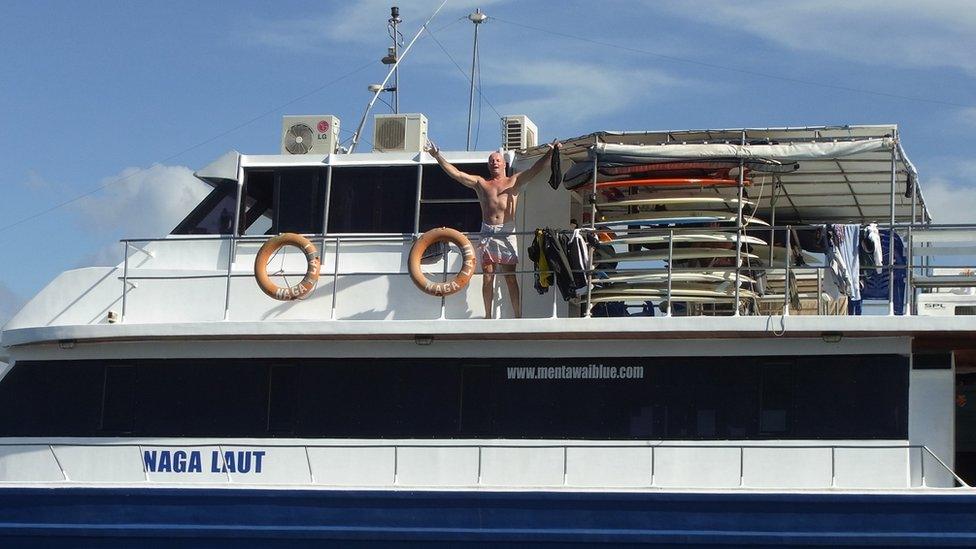
Brett Archibald stands at the position from which he fell overboard
When Brett Archibald fell overboard in the middle of a stormy night in the Indian Ocean he thought he was going to die. For more than 28 hours he was alone at sea, encountering a shark and being attacked by gulls for his eyeballs. Here is his story.
"I just watched the lights of the boat disappear. I screamed, I screamed with everything I had in my lungs, but I realised very quickly that they were never going to hear me."
Brett Archibald relives the moment he thought his life was over. At 02:30 local time on 17 April 2013, in the middle of a storm in the Indian Ocean, he had fallen overboard after passing out on the top deck of a hired boat off the coast of Indonesia. It was dark and pouring with rain.
He was on a surfing holiday with nine friends, but had fallen ill from food poisoning during a 10-hour journey along a stretch of water known as the Mentawai Strait in Indonesia's West Sumatra province.
He had gone to the side of the boat - the Naga Laut - to be ill overboard, when he became dizzy and blacked out. When he woke, he was in the water - the boat already 10 or 15 metres ahead of him.
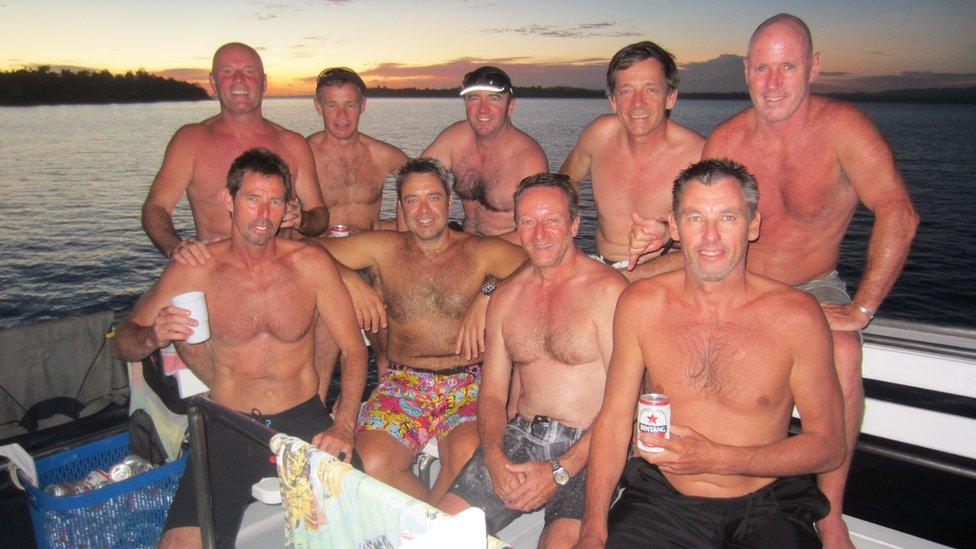
Brett had been on holiday with friends
"I swam with everything I could, but there was no way I was going to catch a boat," he tells the BBC's Victoria Derbyshire programme.
Brett - then aged 50 - from Cape Town, South Africa, remembers being in complete shock. He had never imagined he would be susceptible to falling overboard.
As the boat continued into the distance he remembers staring at the sky, his ears pricking up at the sound of an animalistic cry - that was coming from within.
"I thought there was a hyena in the water - it was a manic, crazy laugh. I looked around me and it was me. It was this crazy noise coming out of my throat, like hysterical laughter."
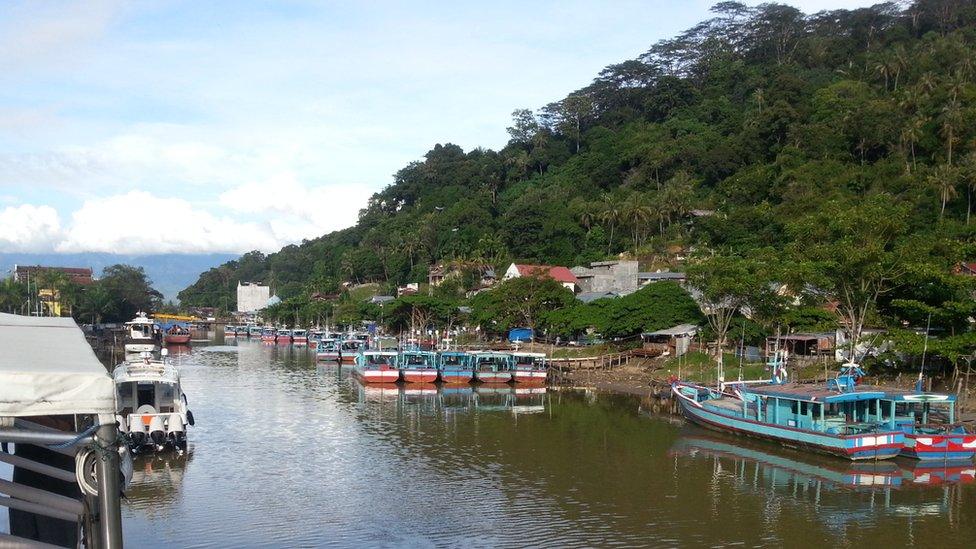
The view from the boat before they set off
For the next 28 hours Brett was alone in the water, but determined not to succumb to the elements.
As a surfer, and strong swimmer, he knew that he needed to take a deep breath and swim through any oncoming waves. He went through his book and CD collections, title by title, in his head to try to forget the unbearable cramp in his limbs - before singing to himself.
He became exhausted, and started to hallucinate, but a series of events gave him the adrenalin, and the fight, to stay alive.
Brett - who has written a book about the ordeal - says he invented his own form of breaststroke to keep his head above water. But as his energy dwindled, he fell asleep - only to be woken by gulls.
"This thing smacked me on the back of the head," he says. "I lifted my head up to see what on earth it was and out of the blue this bird just exploded into my face.
"I felt the bridge of my nose, blood started flowing. I didn't know what had happened - I felt like someone had hit me with a baseball bat.

Find out more
The Victoria Derbyshire programme is broadcast on weekdays between 09:00 and 11:00 on BBC Two and the BBC News channel.

"These two gulls were just dive-bombing me, they were coming from nowhere, squawking and screaming."
Brett believes the gulls were intent on plucking out his eyeballs, but in his crazed state of mind, his main thought was to turn the tables.
"Suddenly I thought, 'I can catch one of them and I can eat him'.
"I thought I could actually pluck one of them out of the air, bite its head off and eat him. I would have eaten that thing feathers and all at that stage."
It was, of course, a plan that went unfulfilled, but it was not Brett's only encounter with life out in the ocean.
'It's a shark'
Around 15 hours after first falling overboard - by Brett's best estimate - he felt a bump to the back of his left kidney.
"I thought it was a barracuda initially, this big fish. Then the thing nudged me again and actually turned me in the water and I thought 'oh it's a shark, I know it's a shark'."
As he was flipped around, he caught a glimpse of what at the time seemed like "the size of a red bus in London".
"It's weird the human mind. My first thought was 'oh he's going to eat me'. I remember lifting my throat and saying 'buddy, just rip my throat out'."
Then he noticed the black edgings of its vertical fin - it was a blacktip reef shark. As a keen surfer in South Africa, where the shark also resides, he knew it did not pose a threat to humans.
His mind quickly turned to a new survival hope.
Brett describes his encounter with the shark
"I thought 'I could catch this guy and he could tow me to a reef'.
"I started in my mind plotting. I even used the words 'Bear Grylls, take off your mask, here comes Archie. I'm going to catch you [shark] and I'm going to tow you to land'."
But then, something very simple happened. It should have brought Brett utter relief, but instead left him distraught and bereft of hope. The shark swam away.
"I've never been so devastated in my life. It was the closest I came to crying, because it was the first time I'd found something that I thought could save my life."
Looking back, he can only describe the mentality as "absolutely crazy".
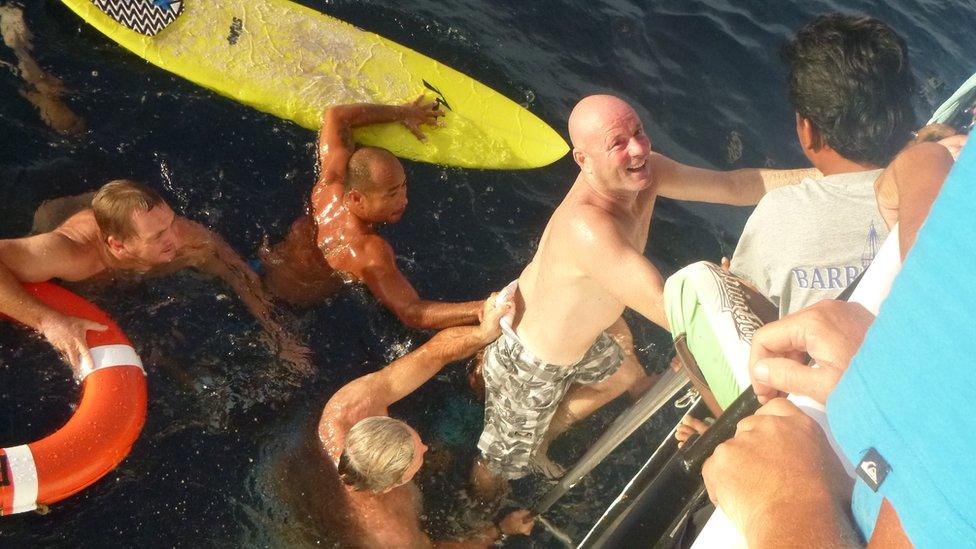
Brett was rescued after a large search and rescue effort
It was a further 13 hours before he was discovered, around 20 kilometres from where he had fallen overboard the previous day.
After his friends saw he had not arrived for breakfast they had contacted the Indonesian coastguard, who co-ordinated a search and rescue effort.
Other nearby vessels joined in, and at around 6.30am local time, a Sydney couple aboard a boat known as the Barrenjoey spotted him in the water, miraculously still alive.
Shaking and in pain - his eyes swollen and his feet, lips and hands nearly bloodless - he was rescued and taken for a medical assessment nearby. He had lost nearly 13lb (6kg) in weight in the water.
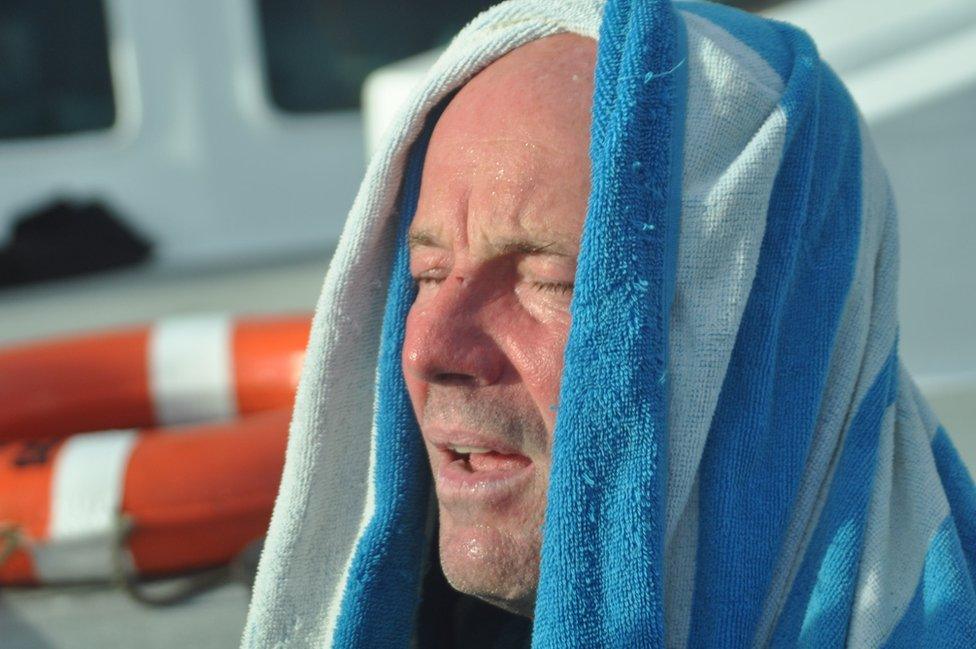
Relief at having been saved
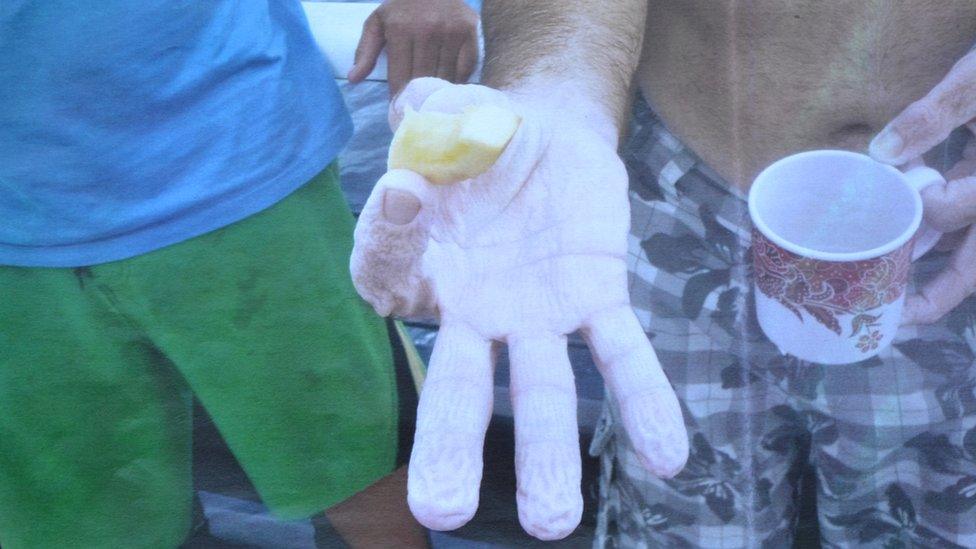
Brett had lost all the blood from his hand
Thoughts of his family - his wife and children aged six and nine at the time - had pulled him through, he says. He remembers at one point saying out loud: "I'm fighting, I'm hanging in there for you" from the water.
Three years on, he says he still shudders each time he goes to the water's edge, but - quite remarkably - still calls the sea his "happy place".
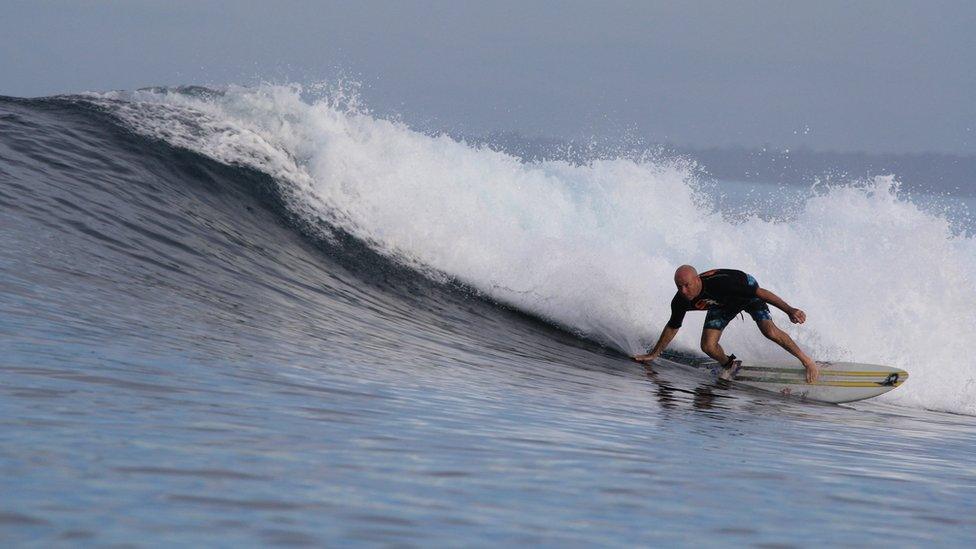
Brett says the sea remains his "happy place"
The very next day after his ordeal Brett was back on his surfboard to ride the waves, which he still enjoys to this day.
"I knew I just had to get back in the ocean. If I hadn't, I never would have gone back in again."
- Published4 April 2015
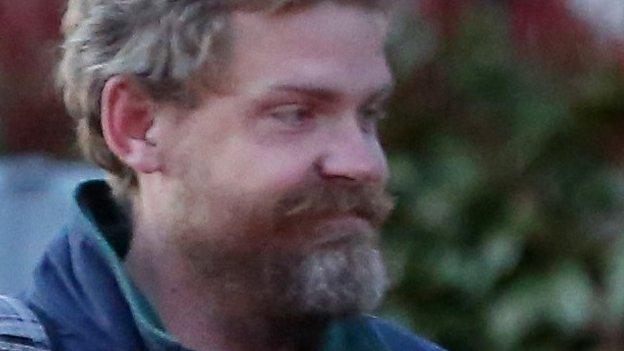
- Published17 March 2016
